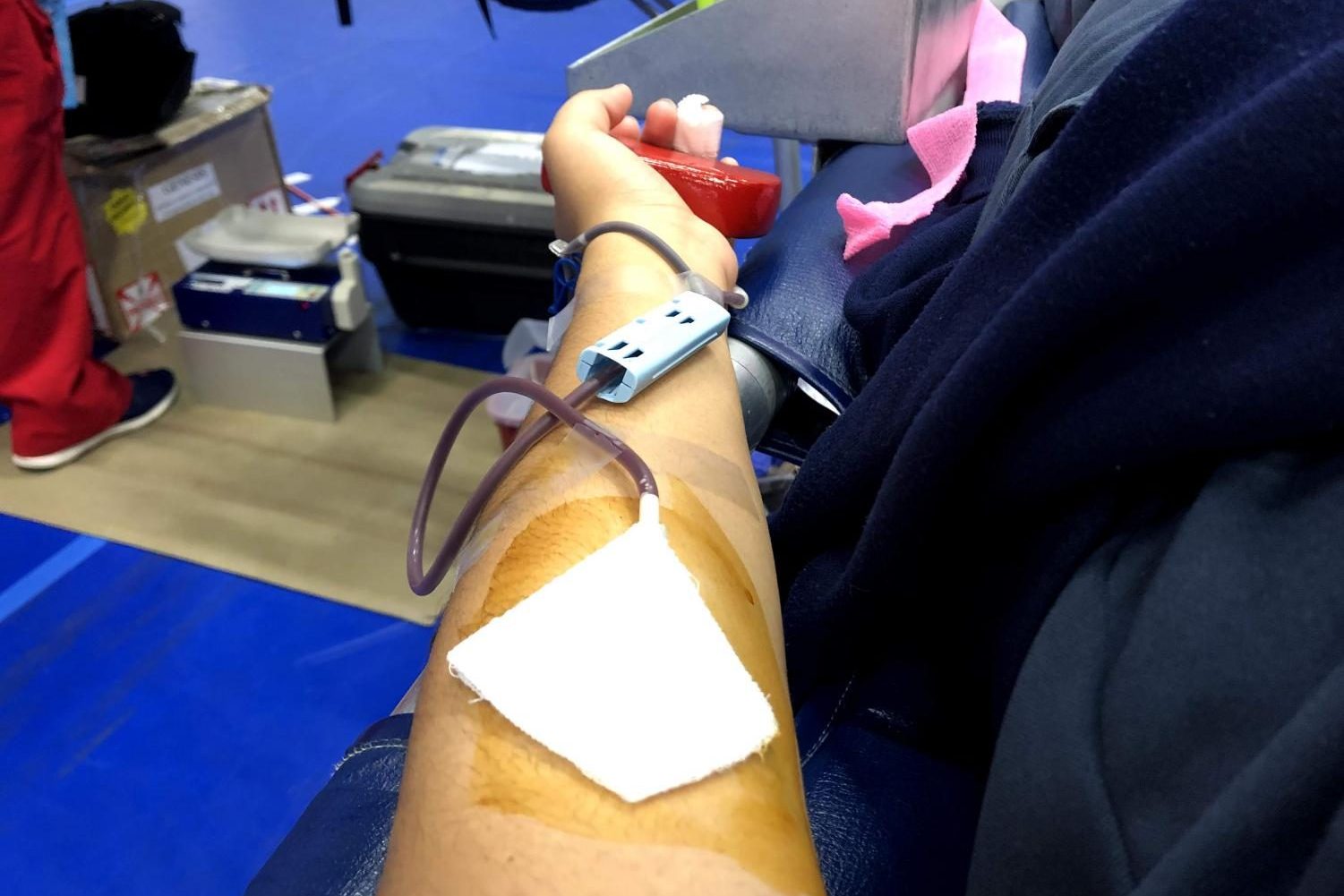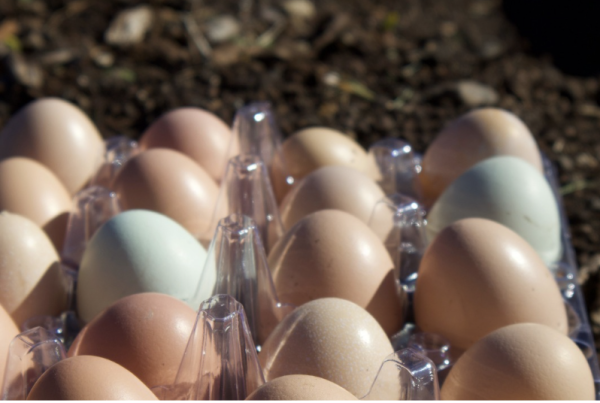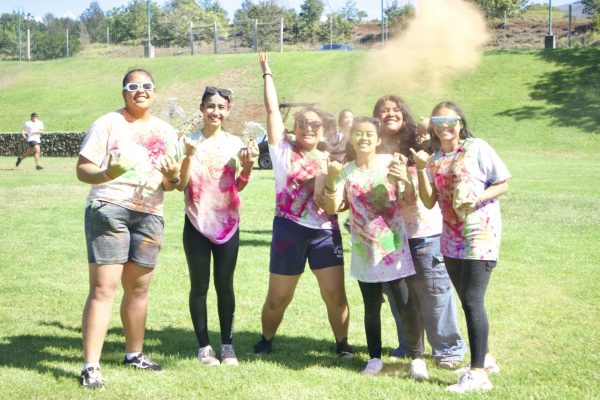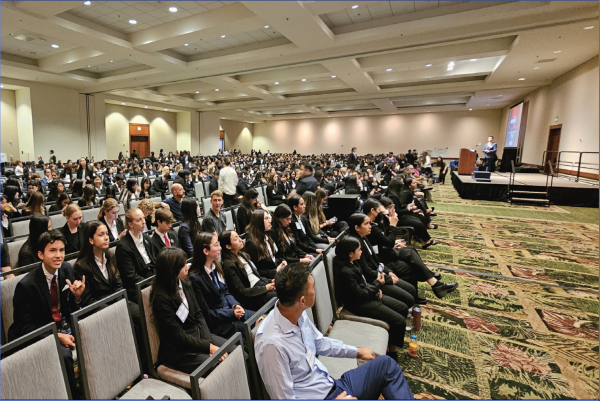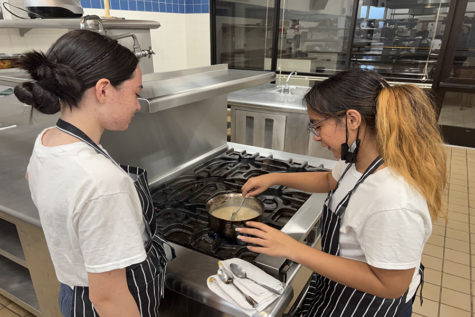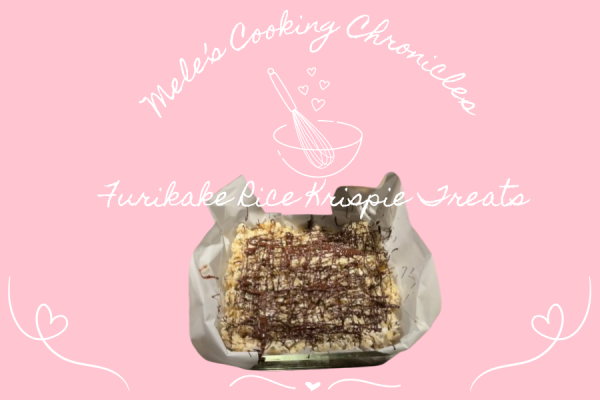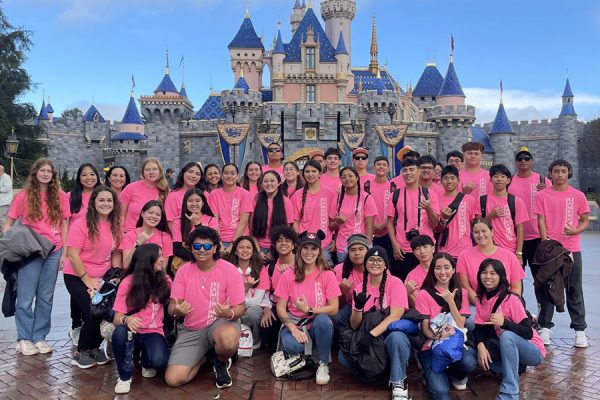Blood drive to save lives
Photo by Chasey Koomoa-Sidney
The annual Kamehameha Maui Blood Drive on Friday, Feb. 21, saw 120 people report to give their blood to the Hawai’i Blood Bank. Organized by seniors Jayci Bulosan and Danielle Bridge, this senior project gives both students and members of the public an opportunity to contribute.
Over 120 people consisting of students, teachers, staff, and people from the community came to donate blood for the Kamehameha Schools Maui Blood Drive at Kaʻulaheanuiokamoku gymnasium from 8 a.m. to 2 p.m. on Feb. 21.
Juniors Danielle Bridge and Jayci Bulosan worked with the Blood Bank of Hawai’i to organize this event for their senior project.
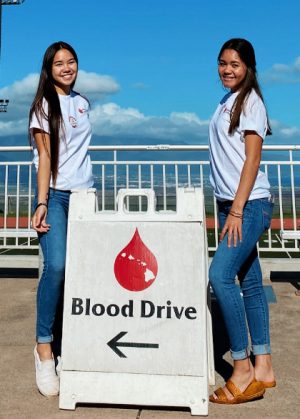
Juniors Danielle Bridge and Jayci Bulosan are ready to start saving some lives through their blood drive.
“We organized the blood drive because there was a need for blood donations in the community, and there aren’t very many donors on Maui, so we hoped to find new donors doing this,” Bridge said.
Blood drives at KSM have been taking place since 2008, making this the 13th time a blood drive has been held here. According to The Blood Bank of Hawai’i, each blood donation has the potential to save 3 lives.
Students above the age of 16 were able to donate blood during school.
One junior said, “I did this because I felt like it was a selfless act and someone else needs it more than I do.” For privacy reasons, Ka Leo o Nā Koa is not identifying the student by name.
Jacyln Fujimoto, donor recruitment and account manager for The Blood Bank of Hawaii said, “I do this because I feel like I am making a difference in the community.”
She also said, “Our main goal is to spread awareness with these events and be able to save lives.”
Donors checked in with staff first and waited for their appointments to donate blood. After donors passed a test and donated blood, they had refreshments and light snacks to help stabilize their blood pressure and replenish fluids. These items were provided through local donations from community businesses.
This experience gave Bulosan valuable practice for her future profession.
“I’m really interested in the medical field and I knew I wanted to do something related to that field for my senior project. I also love helping people and am interested in helping the community,” she said.
One of the main goals for this event was to also obtain the rare Jk3- blood type. Jk3- is widely considered one of the rarest blood types with it only appearing 1 in 10,000 Hawaiians and 1 in 100 Polynesians. This blood is crucial for patients with this blood type. Results of the drive were still pending at the time of this writing.

